A side effect of Netflix’s single-minded quest to transcend dated concepts like “networks” or “channels” is the de facto formation of mini-networks within the streaming service’s overwhelming mega-library. It’s often said that Netflix’s programming runs the gamut from HBO (smoothly packaged prestige like Master of None) to CBS (big-tent sitcoms like Fuller House and One Day at a Time). Equally important to an omnivorous media diet, however, are relaxing mainstays like a parallel Food Network, which is exactly what Netflix has assembled out of the prolific and fruitful niche of food-focused TV.
In a microcosm of its overall strategy, Netflix shored up its food programming by acquiring the back catalogs of shows like Anthony Bourdain’s Parts Unknown, PBS’s The Mind of a Chef, and The Great British Baking Show, which the platform transformed into a cult stateside success. A prestige play followed with Chef’s Table, and with the recent addition of David Chang’s Ugly Delicious, Netflix’s food slate is now as diverse and difficult to summarize as the rest of its offerings.
To satisfy subscribers’ personal tastes, if not their appetites, we’ve put together a programming guide to Netflix’s food-related original series, organized by the particular craving they’re meant to satisfy, from unabashed food porn to eat-your-vegetables information.
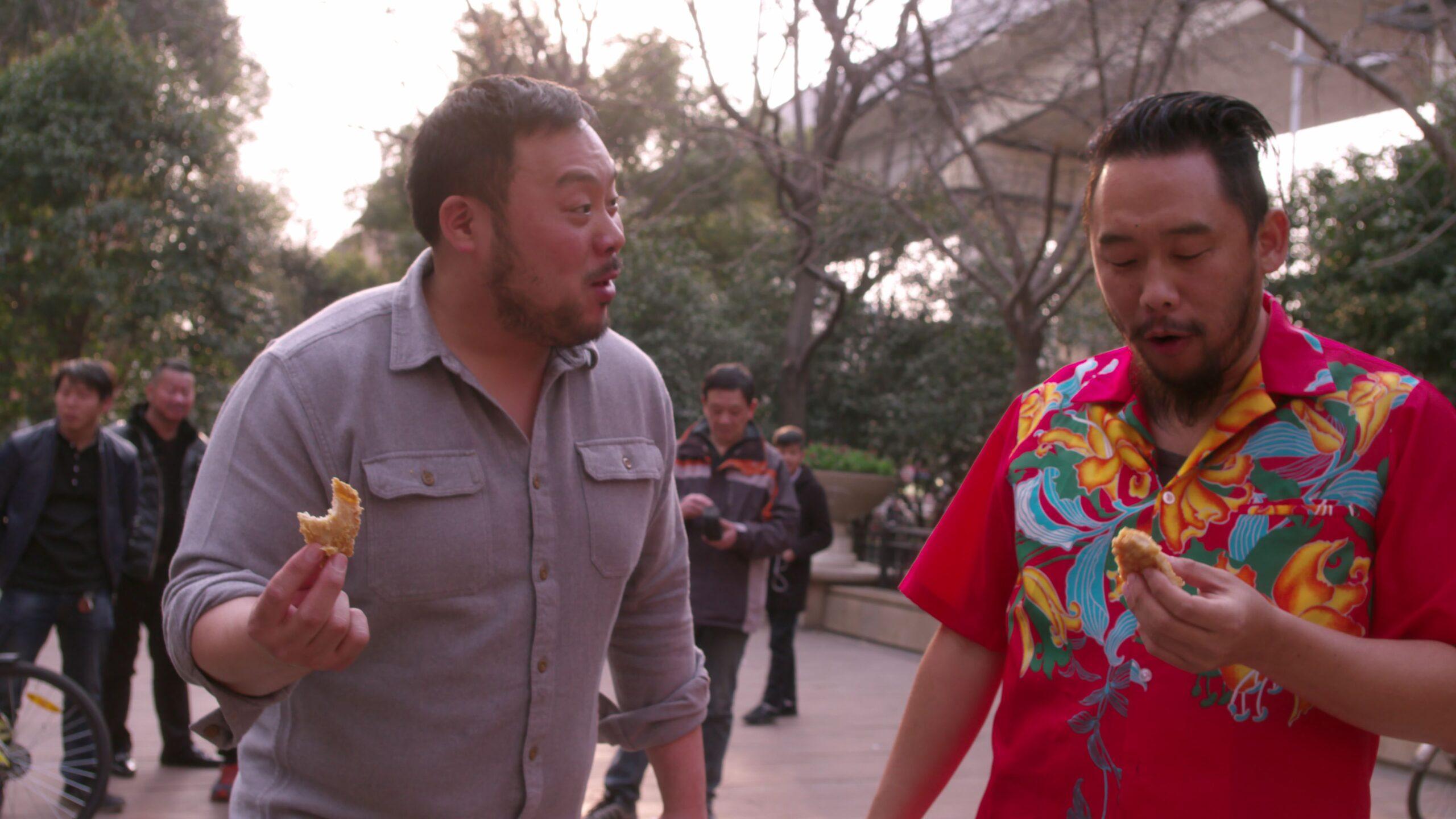
Ugly Delicious
Watch if: You want to know why pork buns started showing up on every trend-chasing menu in America in 2010; there’s a hole in your magazine pile where Lucky Peach used to be.
What to expect: Though it’s been branded for marketing purposes as the David Chang Show, Ugly Delicious is really more of a televised version of the now-defunct magazine the Momofuku empire builder cofounded with writers Peter Meehan and Chris Ying. Chang and Meehan share hosting duties of the eight-episode first season, which translates the very particular Lucky Peach aesthetic to a new platform. Tongue-in-cheek, anarchic, and sometimes self-contradictory, the Chang-Meehan ethos detests “authenticity” (until it doesn’t), screws around (until it spends an episode on systemic racism), and generally celebrates food more as a cultural object than a source of sustenance. Chang’s mother steals the show in a tear-jerking Thanksgiving episode, though an uncensored David Choe also stands out among Ugly Delicious’s impressive array of guest appearances, in which food world celebrities dine side-by-side with regular celebrities.

Somebody Feed Phil
Watch if: You need something to watch with your dad; you want to hang out with your dad but plane tickets and/or gas are expensive; you are a dad.
What to expect: The creator of Everybody Loves Raymond is taking full advantage of the “work is no longer necessary, so do work that’s basically play” phase of his career. Phil Rosenthal’s answer to Curb Your Enthusiasm—another personality-driven, post-syndication effort from a middle-aged L.A. mensch—is a somewhat formulaic go-to-a-place-and-eat-stuff-at-the-place travelogue. Rosenthal’s front-of-camera career began with Exporting Raymond, a documentary about adapting his sitcom for a Russian audience, then continued with I’ll Have What Phil’s Having on PBS. In the tradition of Comedians in Cars Getting Coffee, Netflix then straight-up poached a preexisting show, with a token rebrand belying a completely stable template. For Bourdain or Andrew Zimmern devotees, Rosenthal’s destinations might seem a little entry-level; the first Netflix season includes pit stops in Bangkok and Mexico City, the new Instagram capital of the world. But Rosenthal’s avuncular, eminently approachable personality is the glue that holds the show together. He’s every bit the everyman he spent the late ’90s getting us to laugh with.
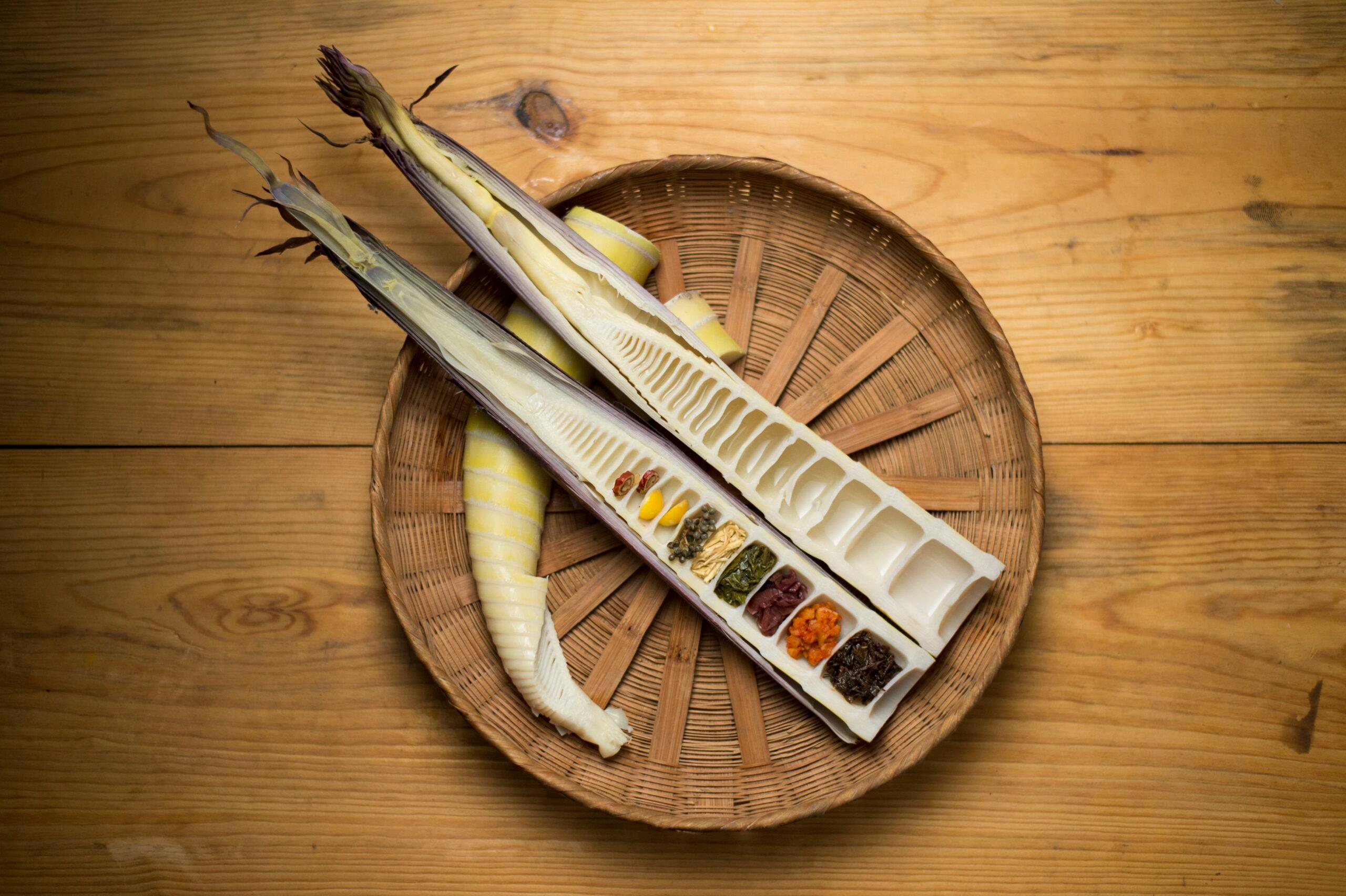
Chef’s Table and Chef’s Table: France
Watch if: You can’t afford the meal of your dreams, but you can settle for the next best thing.
What to expect: The Chef’s Table aesthetic is so well-established that Ugly Delicious felt comfortable using an outright parody as the cold open to its seventh episode. Precisely staged, unrelentingly self-serious, and soundtracked almost exclusively by classical music, Chef’s Table embraces the Michelin guide’s view of fine dining: the more courses, and the less choice or accessibility, the better. (Hence a spinoff focused on France, the epicenter of cooking’s traditionalist old guard.) In contrast with the outspoken populists who now dominate the culinary world, though, there’s an undeniable charm to Chef’s Table’s indefatigable fustiness. Recent seasons have made an admirable effort to branch out with subjects like a New York ramen master or a vegan South Korean nun, but these food stylists still have yet to meet a tweezer they couldn’t expertly deploy. Lowbrow is having its moment; let highbrow retreat to the remote Swedish countryside.
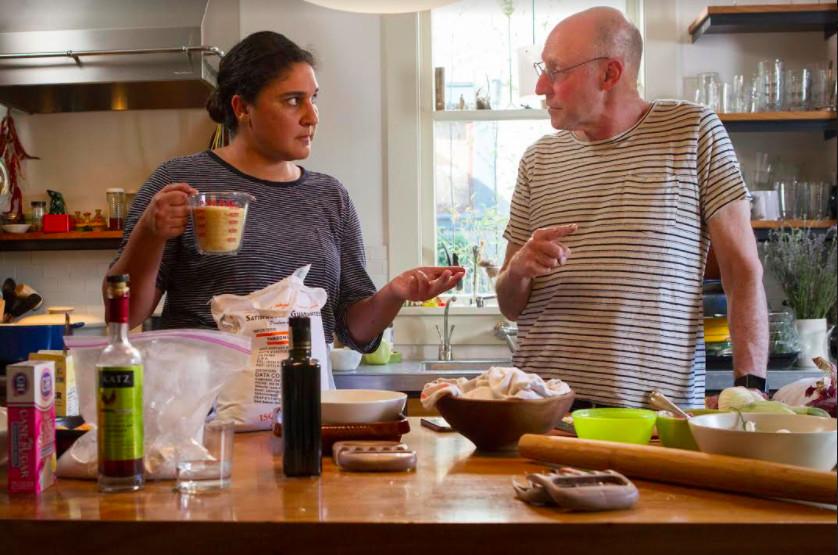
Cooked
Watch if: You want all the dinner party talking points and vicarious self-righteousness of a Michael Pollan book without spending the money or time required to read a Michael Pollan book.
What to expect: Essentially a TL;DR version of Pollan’s 2013 book of the same name, Cooked is a miniseries in four parts, mirroring the structure of its source material. Pollan hosts a program that has all the reverence, wanderlust, and fussiness of Chef’s Table, but with a focus that’s more elemental—literally. With “Fire,” “Water,” “Air,” and finally “Earth” as his lens, Pollan dives into the origins, science, and most rudimentary forms of cooking, delivering a more sophisticated form of pleasure than the usual “Hey, that looks tasty!” cooking show. (Pollan’s barbecue bro-downs come with a side of ruminations about gender roles.) Even a passing familiarity with Pollan’s work renders the themes unsurprising: Technology and capitalism have alienated humans from their food; everyone should strive to throw as many farmer’s market–supplied dinner parties in expansive Bay Area kitchens as possible. Fortunately, a visual aid renders Pollan’s prescriptions more aspirational than preachy.
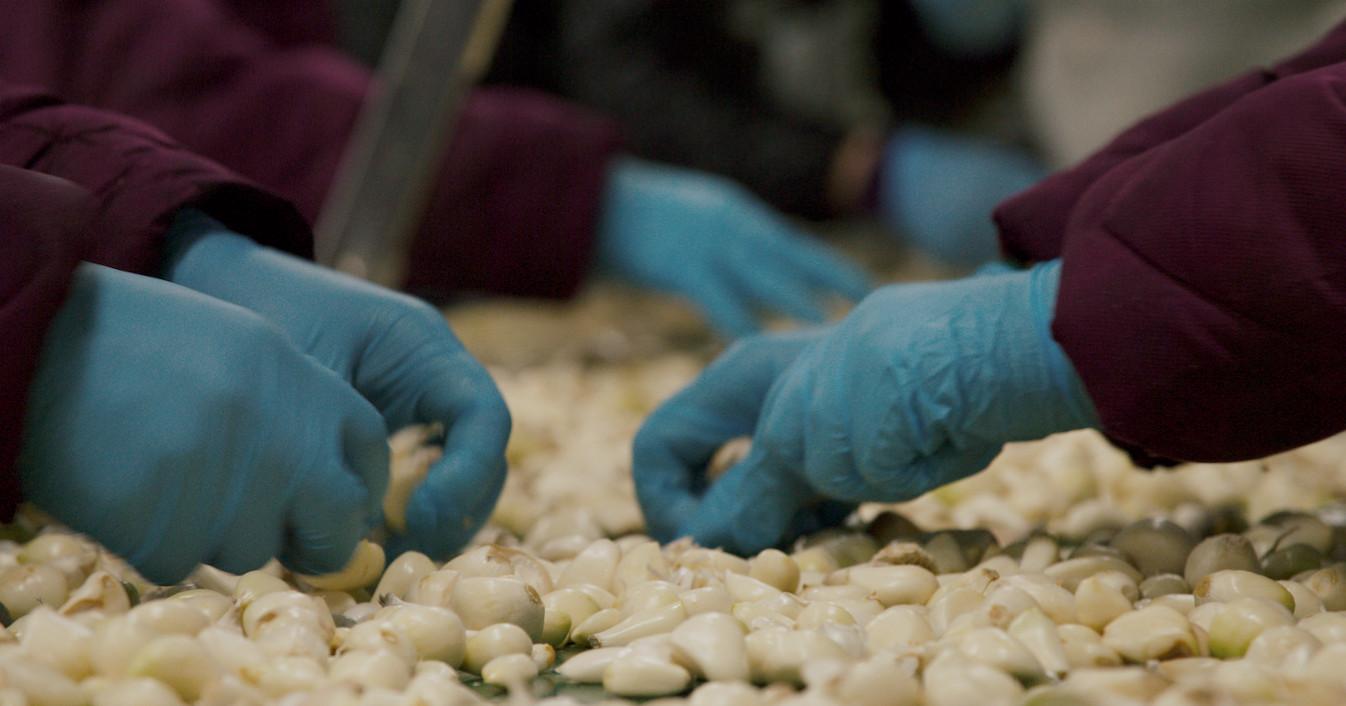
Rotten
Watch if: You want to feel guilty about how much you’re enjoying everything else on this list.
What to expect: Rotten is closer in spirit to fellow Netflix docuseries Dirty Money than a conventional cooking and/or travel show. A six-part series from Zero Point Zero, the production company behind Parts Unknown, Rotten is about the multibillion-dollar industry that goes into putting food on our plates, not the process of eating it. Sometimes there’s a gotcha tone that doesn’t feel entirely warranted—“This is not a victimless crime,” a U.S. attorney says in the first episode, referring to … watered-down honey—but Rotten has a structural focus that comes as a welcome corrective to the artisanal, mom-and-pop romance of more intimate shows. Pulling its focus back to a global network of faceless corporations, intercontinental shipping, and mass production, Rotten exposes a system whose many loopholes and boredom-inducing banality makes exploitation easy. You won’t be able to grocery shop again without wondering about the labor practices of garlic peeling or the cutthroat business of South Carolina chicken farming, and that’s exactly what Rotten wants.
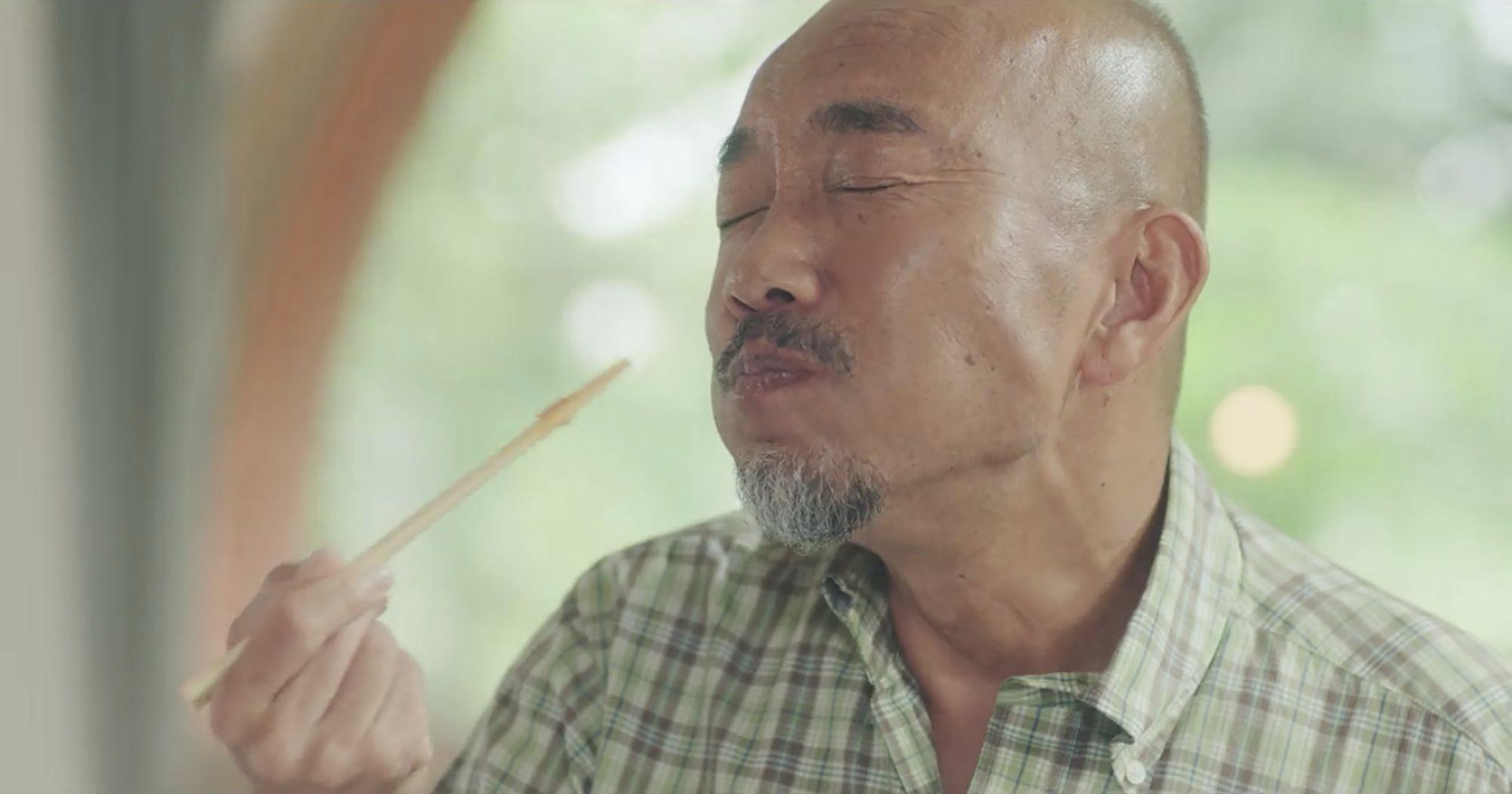
Samurai Gourmet and Kantaro: The Sweet Tooth Salaryman
Watch if: You want to sample some of Netflix’s growing international offerings; you are The Watch cohost Andy Greenwald.
What to expect: The Real World–esque reality show Terrace House has blossomed into an unlikely object of American fascination partly thanks to the obvious cultural differences it highlights between Japan and the U.S. There’s a similar dynamic at work in both Samurai Gourmet and Kantaro: The Sweet Tooth Salaryman, two live-action Japanese comedies (though both originated as manga) that apply the same refreshingly low-stakes framework to scripted TV as Terrace House does to reality. For both Samurai and Kantaro, the thrill of culinary adventure—learning to enjoy one’s appetite in retirement; skipping work to indulge in a sugary treat—is sufficient to hang an entire series on. There’s little in the way of larger conflicts, and the only embellishment comes from bouts of magical realism intended to dramatize the protagonists’ experience of their meal. As with Terrace House, these shows are impossible to watch without feeling at least a little guilty about how overstimulated American viewers are, and how desensitized we’ve become to the unadulterated thrill of a good izakaya.
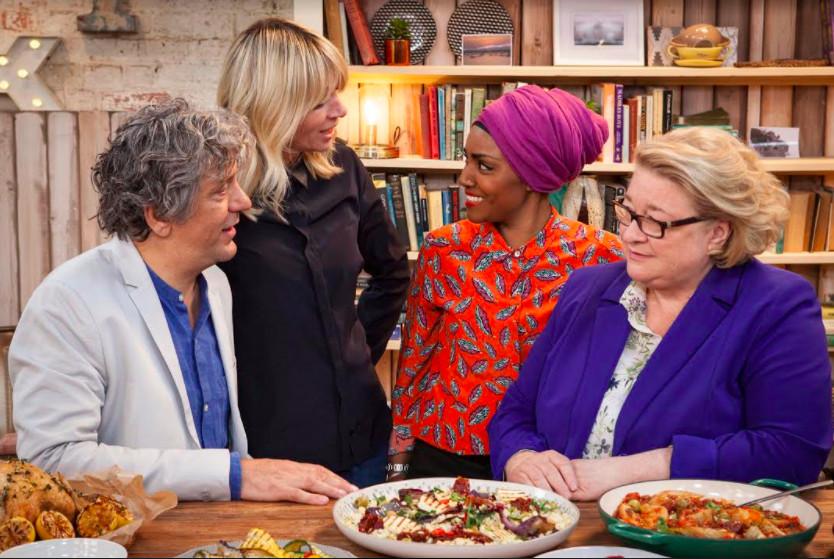
Zumbo’s Just Desserts and The Big Family Cooking Showdown
Watch if: You’ve worked your way through the entire back catalog of Chopped and desperately need a competition show fix.
What to expect: Netflix’s final frontier in its quest to recreate the entirety of television are the genres that traditionally play best as live TV: the daily talk show, for example, or the week-by-week contest. The Great British Baking Show is the exception that proves the rule, removing the stakes and suspense that come with a monetary reward and leaving a product that’s both borderline Zen and perfect for binging. But neither Just Desserts nor The Big Family Cooking Showdown has broken through in a similar way. Cooking Showdown is a transparent tweaking of the GBBS formula, without the magic of Mary Berry; Just Desserts has a season-long arc that doesn’t hold much mystery given that viewers can simply skip ahead to the end of the season and to a reveal they won’t be experiencing along with a collective audience. Netflix is currently riding high on an unscripted success story with the newest incarnation of Queer Eye, but it’s worth remembering that even entertainment’s Death Star is still working out its kinks.